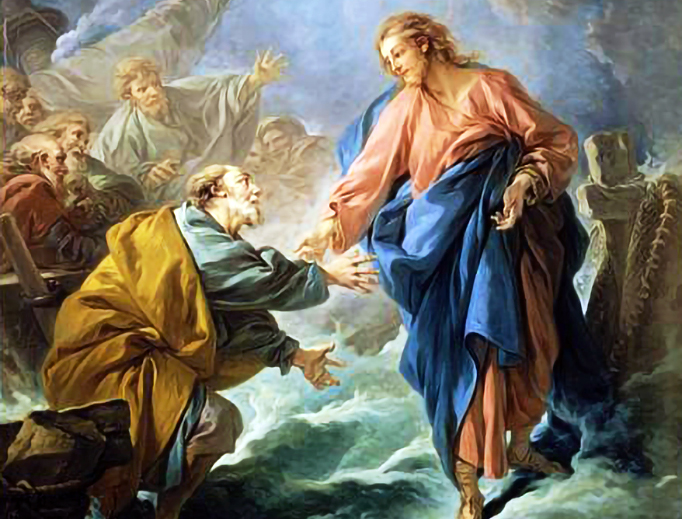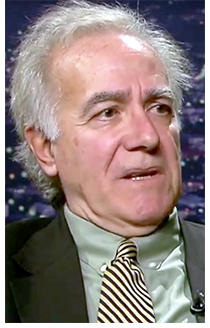Church Historian Discusses the Papacy, Past and Present
“We don’t know what’s going to happen,” says historian Carlos Eire, “but there’s a promise that the Church is not going to disappear and that there’s someone else in charge who is human and divine.”


As a Catholic expert on the Protestant Reformation, professor Carlos Eire is well acquainted with the crises the Catholic Church has periodically faced throughout her history.
A Cuban exile who was airlifted out of the island nation in 1962 to escape Fidel Castro’s regime, Eire received his Ph.D. from Yale in 1979, joined the university’s history faculty in 1996, and has gone on to write several highly acclaimed books not only on the Reformation but also a biography of St. Teresa of Ávila, and an award-winning memoir of his experiences in Cuba and following his exile.
In this recent interview with the Register, Eire discusses the current crisis facing the Church and the papacy, how these events figure in the light of history and how, despite the challenges and suffering it perennially faces, the Church has survived — even during a time when there were three men who claimed to be pope.
Given your knowledge of history and expertise, how would you say this papacy compares with previous ones?
Pope Francis is much less guarded or careful than popes not just in recent history but in the previous 19th, 18th and 17th centuries, all of whom were very careful. He’s constantly surprising me as he surprises everyone else. But what I find very odd about him is that he’s a Jesuit and yet the Jesuit tradition has for so long emphasized being careful. So, he just blurts things out…
Having studied the history of popes, do you think the grace of the office will overcome any challenges and controversies?
Oh, definitely. This is nothing compared to previous crises or previous popes. This is child's play.
But critics say Pope Francis has impinged on doctrine, such as Amoris Laetitia.
Yes, but whenever there’s been any kind of doctrinal conflict or there has been any kind of logjam, it has come, it has gone, sometimes there’s a fallout, but it’s resolved. As with the Old Catholic church after Vatican I, there’s always some fallout, but the Church has survived the crisis. In my Catholic intellectual tradition course, which I co-teach with two colleagues, we’ve tried to get the students to realize that crisis is constant. The details of the crises might be different, and the intensity of the crises might vary, but for heaven’s sake, 70 years in Avignon — and then all the following years of the Great Schism of 1378 where you had not two, but at one point three rival popes — and the Church survived. Conciliarists deposed two popes and elected a new pope, but that only resulted in three popes.
If you were to cross the English Channel during that schism, if you crossed from England to France, you were immediately excommunicated. If you crossed from France to England, it would go the other way, because England recognized the pope in Rome, and France, of course, recognized the pope in Avignon and so there was a mutual excommunication.
It would be even more shocking because there at least you have to get into a ship and cross the water, but on the continent, you just go a few kilometers this way and there was another pope being recognized, and vice versa. So, we shouldn't really get too concerned, because it will resolve itself.
Does this affect your faith?
This is where the historian and the believer can take two very different approaches. I’m both, so the historian on this side of my brain says this looks problematic — like watching two vehicles or two trains about to crash and you don’t know exactly what’s going to happen. But the believer on this side of my head says it may take a while for the dust to settle. We don’t know what’s going to happen, but there’s a promise that the Church is not going to disappear and that there’s someone else in charge who is human and divine.
So there’s protection, but that doesn’t preclude human action, does it?
Oh, no — God has worked through us to protect. Many of these conciliarists during the schism were trying to resolve the multi-pope situation. They meant well and actually many of them, without their work, the problem would not have been resolved. It’s not like Jesus appeared magically at one point and said, “Okay, this is the pope.”
People will always be working hard and often meeting a tremendous resistance. This to me, as a historian and a believer, is always a constant reminder that whatever happens on earth, human beings are making decisions, making choices, sometimes very difficult choices, and God works through people.
And works it to the good eventually?
Eventually — and that’s always the catch for us, because our lifespans are short. So, it’s quite possible that when things go wrong, an individual might never see it resolved in their lifetime and during their lifetime, they will have to put up with quite a bit. The theologian St. Vincent Ferrer actually supported the Avignon pope for a number of years and then finally saw the light and had to back away. But in the meantime, he made life miserable for people who accepted the Roman pope up until the point where he changed sides, but that’s just the way things work out.
What is your opinion on cases where a pope has been accused of unorthodoxy or perhaps even heresy?
It is very rare. But again, there is no really big trouble unless Vatican I is invoked, unless infallibility is invoked. That’s where things would get hairy. Being a heretic and not speaking ex cathedra — while it’s a problem, it’s not the worst kind of problem. And actually, most Catholics don’t know about the famous case that was invoked during the First Vatican Council, which was the case of Pope Honorius I, who in conversations with the patriarch of Constantinople expressed agreement with the heretical proposition about Christ — Monotheletism — the idea that the Christ had only one will, the divine will. Pope Honorius said, “Sounds right to me.” So, during Vatican I this was brought up as an example of popes not being infallible. But this is where the ex-cathedra cloud comes in: Honorius was not speaking ex cathedra. That was a private conversation.
That was very rare.
It’s very rare, but for heaven’s sake, all the disagreements about the Immaculate Conception before it was pronounced a dogma — people fell on both sides, including the popes. But this pope is probably skating on the thinnest ice that anyone — not just living, but dead or watching — is. And they probably are [watching]. It must be that surprising.
Do you think, with the hindsight of history, looking back maybe in 30 years, we’ll look back and see why this happened and that it was perhaps actually necessary?
There’s always a degree of good that comes out of any crisis and whether it’s intentional on the part of the person responsible for the crisis or not is immaterial in the long run.
When it has to do with the popes and the Church, then usually things work out?
Usually they do. One would have to say — given the fact that this is 2019 — not usually, but always. I tell my classes and then their eyes open really wide: “You know, the Catholic Church is the longest-lasting continuous institution in human history.” Not even the pharaohs had this kind of institutional continuity, which is what I’ve always found remarkable. And it’s not just an institution, it’s an absolute monarchy. Granted, the “monarchy” is elected, but the monarch is absolute, has absolute power.
Could one argue that even if a pope changed the whole essence of the papacy, because the office is steered by Christ and the Holy Spirit, that in the long run it really wouldn’t matter? The pope could change it radically and it would still survive.
Oh yes, definitely. We have many examples, not just the popes, but councils that voted the wrong way and then it took some years, but things were corrected. It happens. But what’s always surprised me, both as a historian and a believer, is sort of the… let’s call it “the bounce-back principle,” an effect which you don’t normally see with human institutions. And that’s what I think is one of the more remarkable facets of the history of the Catholic Church.
Despite the best efforts of some members to undermine her, she keeps going.
She keeps going and sometimes there’s so much nastiness and so much suffering involved in these critical moments, in these crises. It’s almost like — I guess an apt comparison might be an illness from which one is eventually healed. It’s never pleasant to go through but the healing is always a wonderful stretch of time, because the healing, even if it’s slow, is always welcome.
- Keywords:
- papacy
- pope francis

















